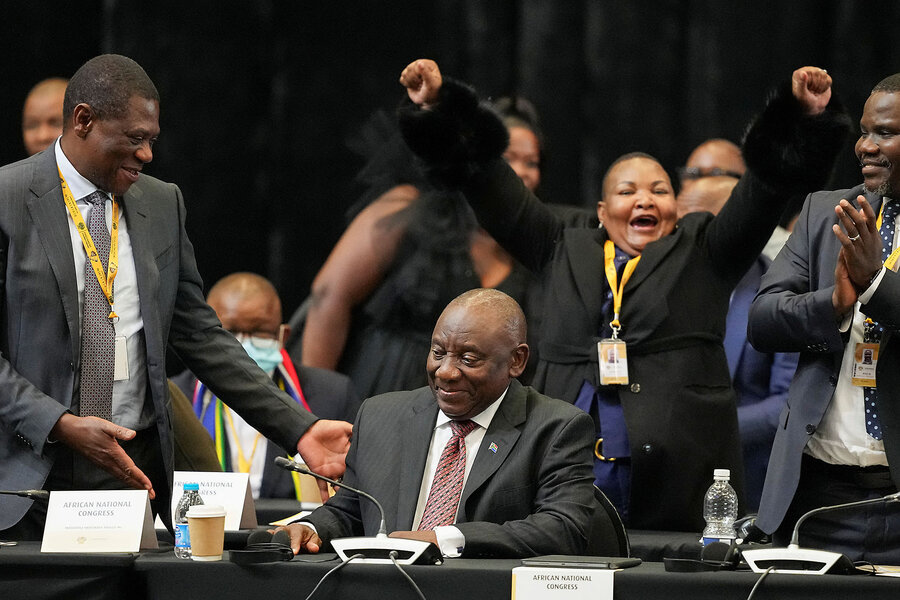South Africa is rethinking its electoral system. Can changes to how people vote make democracy more accountable, inclusive and robust? Here’s what’s at stake.
In a democratic society, elections are not only about the selection of leaders but about the molding of the relationship between the citizens and the state. This is something of a perennial issue in South Africa, where democracy has now matured over three decades.
The discussion on the electoral reform issue has been heightened, largely due to the court judgments and increasing interest from the public in enhancing political responsibility and citizen involvement. A lot of South Africans are asking: Should we change how we elect our representatives? Will it give us better governance or just add another layer of complication?
This article gives a look at the evolution of South Africa’s electoral system, explains the reasons behind the current calls for reform, and discusses what a new voting system could mean for the future of democracy in the country.
An Overview of the Present System
South Africa runs a system of Proportional Representation. Political parties present candidate lists, and voters vote for a party, not for individual candidates. The seats a party wins in the National Assembly are directly related to its share of the vote.
This model has benefits:
• It gives small parties a guaranteed share of representation.
• It stops majority take over.
• It shows the varied makeup of society.
It has disadvantages, too. Since voters do not directly elect individual MPs, many people feel disconnected from their representative hence the accountability and responsiveness concerns that have been expressed.
Demands for change have grown since the 2020 Constitutional Court ruling that found the present system of not allowing independent candidates for national and provincial elections to be unconstitutional. The ruling forced parliament to make the necessary changes for independent candidates to run.
But this is what has triggered wider debates. There are those who feel that just allowing independents is not enough – that deeper reforms are required to improve democratic accountability, representation, and governance.
The key issues are:
• Dissatisfaction of voters with party politics and no direct representation.
• Low public trust in political institutions.
• More support for minor or independent candidates.
• Calls for constituency-based elements to improve the link between voters and elected officials.
What kind of reform is being discussed?
The current reform proposals explore a mixed electoral system, which combines proportional representation with direct voting based on constituencies. In such a system:
• Some seats will still come from party lists.
• Another share will be taken by individual candidates elected by constituencies.
This mixes to keep the balance while adding accountability. Germany and New Zealand have used such systems well.
They believe that:
• It gives more direct powers of election to the representatives by voters.
• It improves the accountability and, therefore, the service at the local level.
This would push citizens to take a more active part in elections and politics. Challenges moving forward Electoral reform is not a simple take. It involves careful coordination among the legal, administrative, and political aspects. Some of the concerns raised include: 1. Voter complexity New ballots or systems can be complicated. Voter education will be critical so that people know how to vote effectively in a mixed system 2. Cost and logistics
A district-based system necessitates the outlining of boundaries, more election workers as well as stronger local oversight mechanisms — all of which comes at a cost. 3. Risk of fragmentation
Unless meticulously contrived, such reforms might precipitate a political fragmentation or obscurity in the majorities, making, however, the task of coalition-building somewhat more arduous and rendering the governance somewhat more frail.
Surveys conducted by independent bodies, for example, the Human Sciences Research Council indicate that a considerable proportion of South Africans are in favor of increased accountability of elections, though with a word of caution against rushing into a new system.
The greater majority of recent poll respondents say they would want to have the right to vote for individuals rather than just political parties.
Towards the future: can change advance a more powerful democracy?
Electoral reform is no magic pill, but it can be an important tool toward the deepening of democracy. The electoral system has indeed delivered to South Africa on a platter of gold because it ensured inclusiveness and proportionate fairness. Large demands for direct accountability and responsiveness, however, indicate that some changes need to be made to keep up with the expectations of the citizens.
• Promote diversity in the leadership, particularly from underserved regions or communities.
But these gains will only be attained if the overhaul process is inclusive, transparent and driven by the public interest not just party dynamics.
The discussion on the electoral revamp in South Africa reflects a coming of age for the democracy-a society asking itself more profound questions about representation, fairness, and the kind of future it wants to build
Though the change of voting systems is a complex and delicate task, it also does something powerful, which is bringing voters closer to their representatives, thus improving accountability and refreshing public faith in the democratic journey. Ultimately, the goal is not just to vote but to be heard, respected, and represented.
